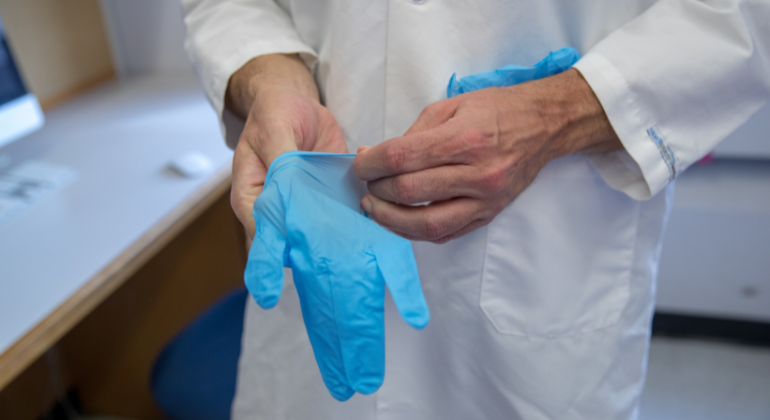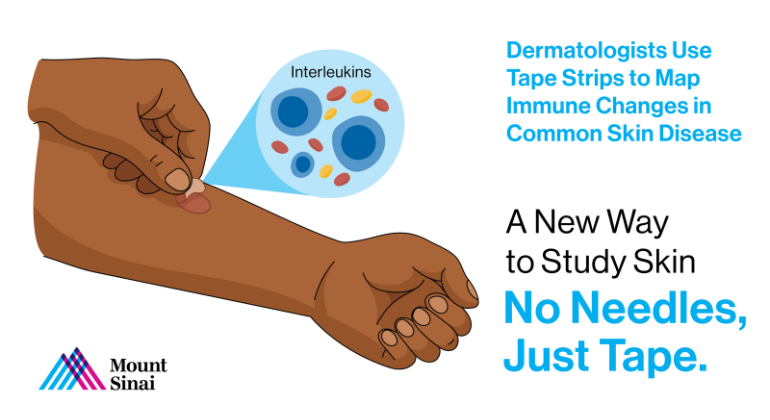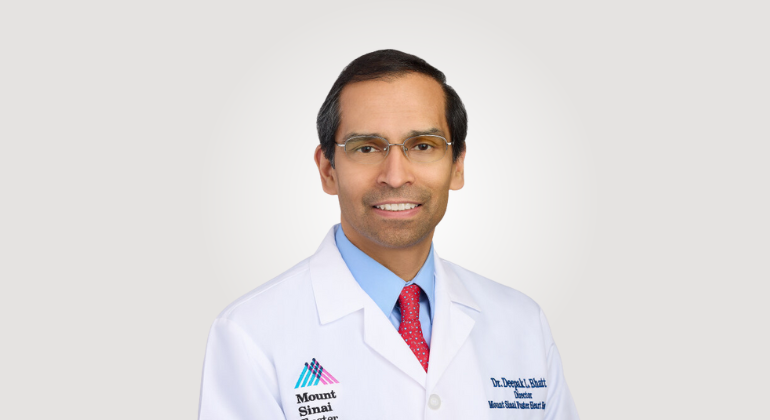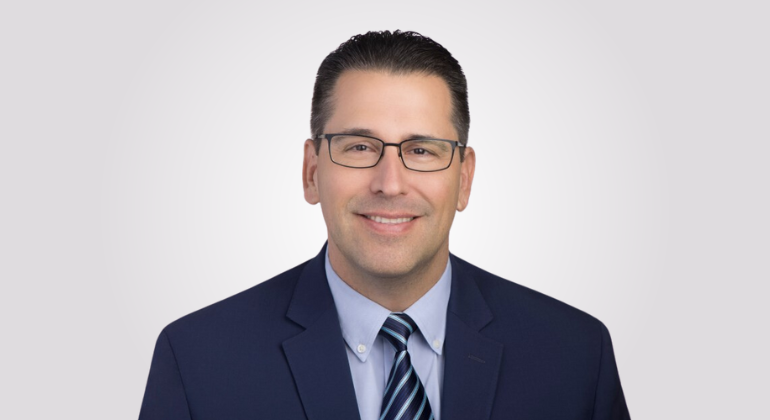New Drug Now Available for Actinic Keratosis, a Common Pre-Cancerous Skin Condition
Mark Lebwohl, MD, Professor and Chair of Dermatology, is the lead author of the study published in the New England Journal of Medicine.
A new topical gel now available by prescription significantly decreases the amount of time needed to treat actinic keratosis, a skin condition that is a common precursor to skin cancer, according to a multi-center trial led by researchers at Mount Sinai School of Medicine. The gel, called ingenol mebutate, is applied to the skin for just a few days, making it quicker and even more effective as current therapies require weeks to months to apply. The Phase III study results of the trial are published in the March 15, 2012 issue of the The New England Journal of Medicine.
Actinic keratoses are premalignant skin lesions very common in fair-skinned individuals who always burn and rarely tan. It is the most common precursor to sun-related squamous-cell carcinoma, the second most common type of skin cancer. Current topical medications to treat actinic keratosis often causes skin irritation and result in many patients not completing the full treatment regimen. Topical gels are used as an alternative treatment to cryosurgery, a method of freezing lesions using liquid nitrogen as the cooling solution, to destroy the precancerous skin lesions. Cryosurgery is the most common form of treatment, but is only practical in treating areas with single lesions, not multiple lesions.
"The shorter application period is what makes ingenol mebutate a breakthrough in the treatment of actinic keratosis," said Mark Lebwohl, MD, lead study author and Professor and Chair of the Department of Dermatology at Mount Sinai School of Medicine. "Many patients find it difficult to stick with the current regimen. The shorter period is a more effective option for patients who don’t want a treatment that interferes with their everyday lives for weeks or even months."
Ingenol mebutate is derived from the active ingredient in the sap of the plant Euphorbia peplus, which has long been used as a traditional remedy for common skin lesions. The study found patients require just two to three days of application with results comparable or improved to rates of current actinic keratosis clearance. The shorter treatment period also results in 98 percent of patients completing the full treatment regimen.
Researchers studied two cohorts; 547 patients with actinic keratoses on the face or scalp and 458 patients with actinic keratoses on the trunk or extremities. About half of each group received ingenol mebutate with the other half receiving a placebo. The first group applied treatment at a .015 percent concentration for three days and the second at a .05 percent concentration for two days. At the end of the evaluation period, 42 percent of the first group that received ingenol mebutate and 34 percent of the second group showed complete clearance of actinic keratosis, compared to about 4 and 5 percent, respectively, of the placebo groups.
The approval of ingenol mebutate was announced at the 2012 The American Academy of Dermatology's Annual Meeting and is currently available for prescription under the name Picato®.
Funding for this research was provided LEO Pharma. Dr. Lebwohl is currently a paid consultant for LEO Pharmaceuticals (LEO) but did not have any financial interests in LEO during the period this study was active.
About The Mount Sinai Medical Center
The Mount Sinai Medical Center encompasses both The Mount Sinai Hospital and Mount Sinai School of Medicine. Established in 1968, Mount Sinai School of Medicine is one of the leading medical schools in the United States. The Medical School is noted for innovation in education, biomedical research, clinical care delivery, and local and global community service. It has more than 3,400 faculty in 32 departments and 14 research institutes, and ranks among the top 20 medical schools both in National Institutes of Health (NIH) funding and by U.S. News & World Report.
The Mount Sinai Hospital, founded in 1852, is a 1,171-bed tertiary- and quaternary-care teaching facility and one of the nation’s oldest, largest and most-respected voluntary hospitals. In 2011, U.S. News & World Report ranked The Mount Sinai Hospital 16th on its elite Honor Roll of the nation’s top hospitals based on reputation, safety, and other patient-care factors. Of the top 20 hospitals in the United States, Mount Sinai is one of 12 integrated academic medical centers whose medical school ranks among the top 20 in NIH funding and U.S. News & World Report and whose hospital is on the U.S. News & World Report Honor Roll. Nearly 60,000 people were treated at Mount Sinai as inpatients last year, and approximately 560,000 outpatient visits took place.
For more information, visit http://www.mountsinai.org/.
Find Mount Sinai on:
Facebook: http://www.facebook.com/mountsinainyc
Twitter @mountsinainyc
YouTube: http://www.youtube.com/mountsinainy
About the Mount Sinai Health System
Mount Sinai Health System is one of the largest academic medical systems in the New York metro area, with 48,000 employees working across seven hospitals, more than 400 outpatient practices, more than 600 research and clinical labs, a school of nursing, and a leading school of medicine and graduate education. Mount Sinai advances health for all people, everywhere, by taking on the most complex health care challenges of our time—discovering and applying new scientific learning and knowledge; developing safer, more effective treatments; educating the next generation of medical leaders and innovators; and supporting local communities by delivering high-quality care to all who need it.
Through the integration of its hospitals, labs, and schools, Mount Sinai offers comprehensive health care solutions from birth through geriatrics, leveraging innovative approaches such as artificial intelligence and informatics while keeping patients’ medical and emotional needs at the center of all treatment. The Health System includes approximately 9,000 primary and specialty care physicians and 11 free-standing joint-venture centers throughout the five boroughs of New York City, Westchester, Long Island, and Florida. Hospitals within the System are consistently ranked by Newsweek’s® “The World’s Best Smart Hospitals, Best in State Hospitals, World Best Hospitals and Best Specialty Hospitals” and by U.S. News & World Report's® “Best Hospitals” and “Best Children’s Hospitals.” The Mount Sinai Hospital is on the U.S. News & World Report® “Best Hospitals” Honor Roll for 2024-2025.
For more information, visit https://www.mountsinai.org or find Mount Sinai on Facebook, Instagram, LinkedIn, X, and YouTube.

The New England Journal of Medicine Shines Spotlight on Forensic Pathology
Jul 03, 2025 View All Press Releases
Mount Sinai Dermatologists Use Tape Strips to Map Immune Changes in Common Skin Disease
Jun 10, 2025 View All Press Releases






